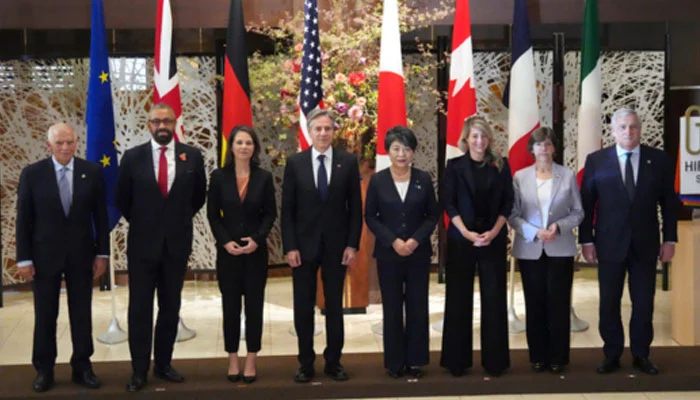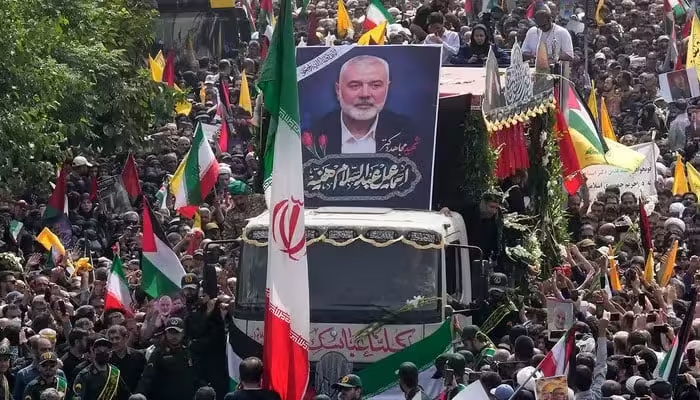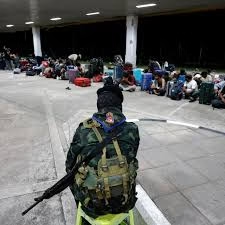The Group of Seven (G7), composed of some of the world’s most developed countries, has publicly expressed its support for Israel while emphasizing the need to adhere to international law. This statement comes amidst an ongoing series of Israeli military operations in the Gaza Strip, leading to further casualties. With over 214 Palestinian fatalities and a total of 10,569 people killed, the situation in Gaza has drawn the attention of international human rights organizations.
It is important to note that while G7 countries expressed their support for Israel’s right to self-defense, they also stressed the importance of respecting international law. The recent escalation of Israeli military activities in Gaza has added to the toll, with casualties predominantly including women and children. The region faces a humanitarian crisis, as more than two million people in Gaza are currently struggling to access basic necessities such as food.
Furthermore, Israeli forces have forcibly evacuated thousands of individuals from their homes in the northern part of Gaza. The situation has led to widespread destruction, with evidence showing that 136 Israeli military vehicles, including tanks and armored carriers, have been destroyed during this conflict, according to Al-Qassam Brigades. The group claims to have evidence supporting the destruction of these military vehicles.
Israel’s military operations in Gaza have included surgical strikes and attacks, resulting in heavy casualties for the Israeli Defense Forces. While the international community, through G7 countries, has voiced its concern over the situation, it has refrained from condemning Israel’s actions or the shelling of Gaza. Instead, foreign ministers from the G7 countries have emphasized humanitarian concerns, calling for a ceasefire and the establishment of safe corridors for civilians. They have also called for the release of prisoners.
In addition to addressing the situation in Gaza, G7 countries have stressed the need for a reduced role of Iran in supporting Hamas and Hezbollah. This emphasis on regional stability is aimed at curbing the violence that has erupted in the area.
The situation in Gaza remains dire, with Israeli forces continuing to bomb neighborhoods and infrastructure. Over the past month, more than 50 mosques have been targeted and destroyed, with the Israeli military using airstrikes to create widespread damage. United Nations-supervised schools, which serve as shelters for thousands of displaced Palestinians, have also been hit.
The impact of these attacks on the healthcare system is devastating. The closure of roads leading to Al-Quds Hospital has made it difficult to transport injured individuals for treatment, further worsening the situation.
The escalating conflict in Gaza is a matter of grave concern for the international community. While the G7 has expressed its support for Israel’s right to self-defense, it has also underlined the importance of adhering to international law. Calls for a ceasefire, humanitarian aid, and the release of prisoners underscore the need for immediate action to address the humanitarian crisis in Gaza.
The international community, represented by G7 countries, is closely monitoring the situation in Gaza. While supporting Israel’s right to self-defense, G7 members stress the importance of adhering to international law. The crisis in Gaza, with its devastating impact on civilians, calls for immediate humanitarian action and renewed efforts to establish peace in the region.



